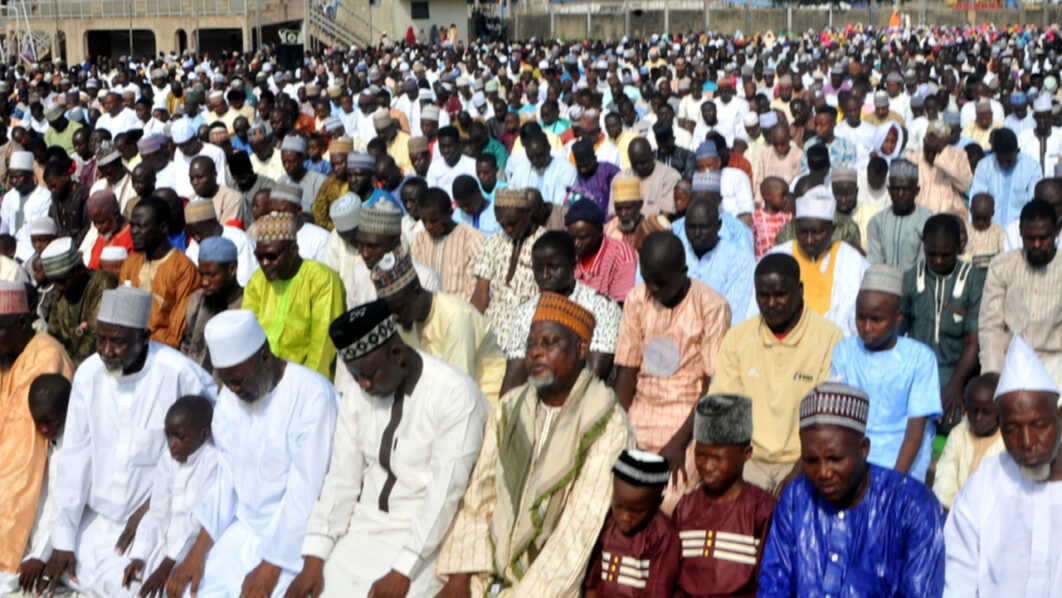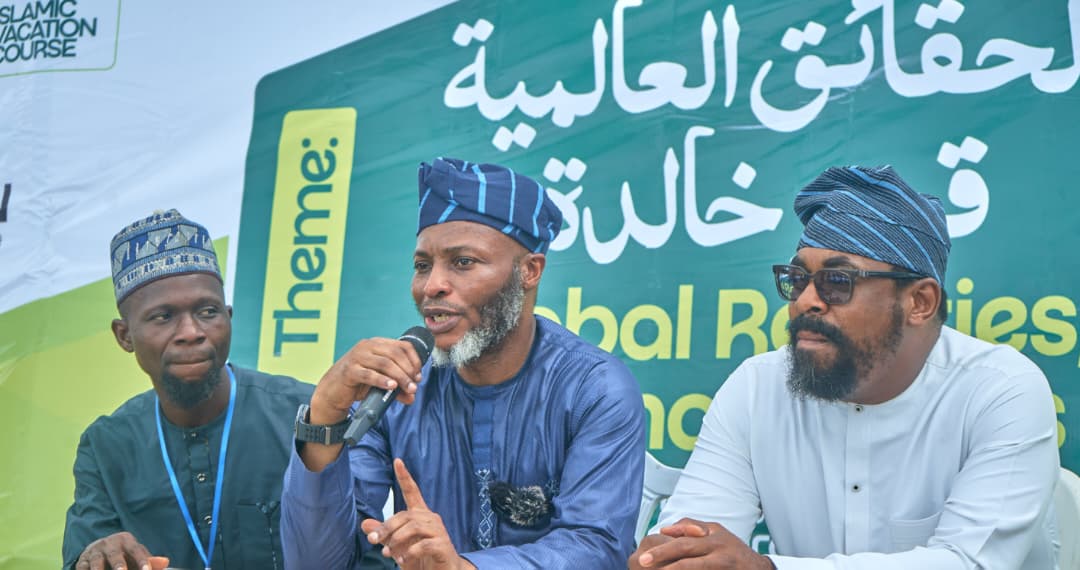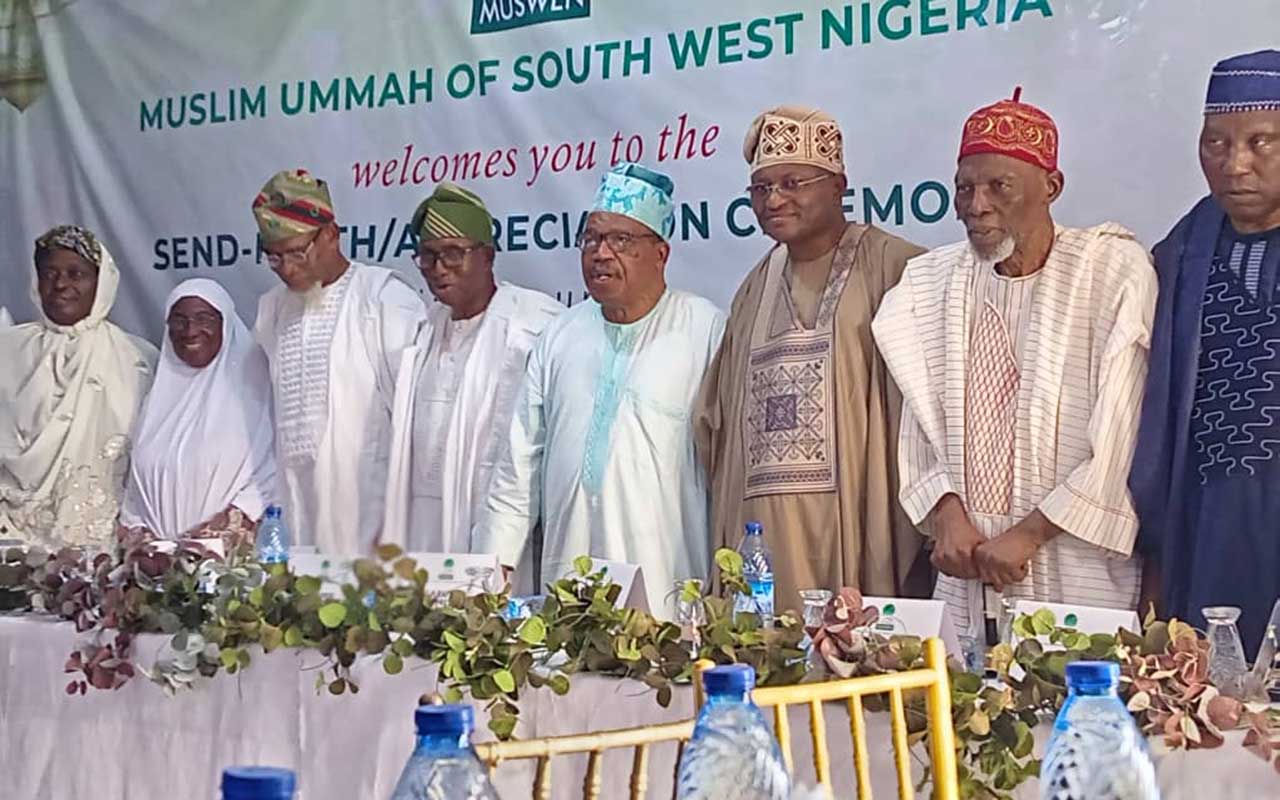
Today, we gather under the auspices of Robitatu-l-Aimmah wal Ulamoh fi Bilaadi Yoruba, the League of Imams and Alfas in Yorubaland, to discuss a theme of paramount importance: “Strengthening Islamic Unity and Progress in Yoruba Land.” This gathering is not merely a meeting of minds; it is a call to action, a reminder of our shared heritage, and a declaration of our collective commitment to advancing our communities. Today’s gathering aims to reflect upon our history, assess our present, and chart a course for a united and progressive future for Muslims in Yoruba Land. We are here to understand our communities’ pivotal roles in the past, acknowledge the challenges we face due to disunity, and explore practical steps towards achieving greater cohesion and development.
In my speech today, I will begin by delving into the historical context of Islamic unity in Yoruba Land, highlighting the contributions of key cities such as Lagos, Ibadan, Ilorin, and Iwo. I will then explore Muslim communities’ social and economic contributions, particularly in areas like tax, water resource management, and education.
Following this, I will discuss the detrimental impact of disunity, illustrating how it has hindered our progress and examining specific instances where our collective strength was diminished. I will conclude with a path forward, outlining strategies to strengthen unity and foster progress, focusing on the role of the Rabita in leading this transformation.
Historical context of Islamic unity in Yorubaland
ISLAM’s presence in Yorubaland is a testament to a rich and vibrant history that stretches back several centuries, marked by the profound influence of trade, migration, and the dedicated efforts of early Islamic scholars and missionaries.
Scholars have traced the emergence of Islam in Yorubaland to the fourteenth century by missionaries and traders called Imale – a name which resonates with the historical identity of Islam (Esin Imale) across all Yoruba towns and settlements (Muhib 1998; Gbadamosi 1978). The advent of Islam in this region was not merely the introduction of a new faith but the beginning of a transformative era that reshaped the intellectual, social, and cultural landscape of Yoruba society. Islamic teachings were accompanied by a wealth of knowledge in diverse fields, including science, philosophy, and governance, echoing the holistic approach to life that the Qur’an and Hadith promote. As the Qur’an (96:1-5) instructs: “Read in the name of your Lord who created,” emphasising the centrality of knowledge and learning in Islam, the early Muslim scholars embodied these values, using their knowledge to build communities and foster intellectual growth.
In cities like Lagos, Ibadan, Ilorin, and Oyo, the seeds of Islamic scholarship were sown, creating strongholds of learning and culture. The influence of Islam was well received Yoruba kings who sought the accepted Islam and sought the advice and guidance of Islamic scholars of statecraft and governance. Notably, Alaafin Ajagbo (1650-1658) of Oyo, and the duo of Ọba Kosoko (1845 to 1851) and Ọba Adele Ajosun ([1811 – 1821], [1835–1837]) of Lagos accommodated Muslims and Islamic clerics in the governance of their courts (Balogun, 2019).
These cities, with their growing populations and strategic geographical significance, became vital centres for the spread of Islam. The establishment of mosques such as the first mosque built in Oyo-Ile in 1550AD and subsequent mosques built in Iwo (1665), Iseyin (1760) and Lagos (1774), Saki (1790) and Osogbo (1899) are testament of Islamic influence across Yorubaland.
Also, the establishment of Quranic schools, and madrasahs was not merely a religious endeavour; it was a pivotal contribution to the moral and intellectual fabric of society. As stated in the Hadith, “Seeking knowledge is an obligation upon every Muslim” (Ibn Majah), and this principle was put into practice as these communities became hubs of learning, reform, and leadership. The establishment of Islamic educational institutions allowed the integration of religious and secular knowledge, ensuring that the early Muslim communities in Yorubaland were well-rounded, capable of navigating both the spiritual and temporal needs of their society. This dual emphasis on spiritual and intellectual development helped foster a sense of unity, reflecting the Qur’anic injunction to: “Hold fast to the rope of Allah, all of you together, and be not divided” (Qur’an 3:103).
Lagos, with its status as a bustling port city, exemplified the critical role that Muslim leadership played in the development of the region. Muslim merchants and scholars were at the forefront of shaping Lagos’ economic and social landscape, establishing trade networks and taxation systems that contributed to its prosperity.
This legacy is rooted in Islamic principles of fairness and justice in economic dealings, as seen in the Hadith: “Give the worker his wages before his sweat dries” (Sunan Ibn Majah), which underscores the importance of ethical commerce. The Muslim leadership in Lagos was also instrumental in the establishment of educational institutions that balanced religious teachings with secular knowledge. This integration ensured that the Muslim community was not only deeply rooted in Islamic values but also well-equipped to adapt to the demands of a rapidly modernising world. The wisdom of integrating religious and secular education mirrors the Qur’anic teaching, “And say, ‘My Lord, increase me in knowledge’” (Qur’an 20:114), illustrating how the pursuit of knowledge in all its forms is a central Islamic value.
Ibadan, known for its vibrant intellectual culture, played a significant role in consolidating Islam in Yorubaland. The city became a beacon of Islamic learning, with its scholars and institutions promoting both religious and secular education. The establishment of madrasahs and Quranic schools laid the foundation for a literate and educated Muslim populace.
These institutions not only provided religious instruction but also incorporated subjects like mathematics, science, and literature, reflecting the holistic approach to education that Islam advocates. This mirrors the tradition of the early Islamic Golden Age, where scholars like Al-Khwarizmi and Ibn Sina contributed to the world’s understanding of various scientific fields while remaining grounded in their Islamic faith. The intellectual vibrancy of Ibadan attracted scholars from across West Africa, creating a culture of knowledge and critical thinking that continues to shape the city today.
Ilorin and Iwo are two other cities with a rich history of Islamic scholarship and cultural integration. Ilorin, in particular, is renowned for its contributions to Islamic jurisprudence and intellectual thought. The scholars of Ilorin have been instrumental in the development of Islamic thought in West Africa, producing significant works on theology, jurisprudence, and philosophy. This echoes the Qur’anic command to “reflect deeply on the Qur’an” (Qur’an 4:82), which encourages believers to engage with Islamic teachings in a profound and meaningful way.
Similarly, Iwo has produced notable scholars who have been at the forefront of promoting Islamic education and values throughout Yorubaland and beyond. The contributions of both cities to Islamic scholarship are a testament to the enduring legacy of Islam in Yorubaland, where knowledge and piety are revered and celebrated.
The League of Imams and Alfas – Robitatu-l-Aimmah wal Ulamoh fi Bilaadi Yoruba – has played a crucial role in uniting the Muslim Ummah across Yorubaland. Historically, the League has been a vital coordinating body, bringing together Imams, scholars, and community leaders to address common challenges and promote Islamic values.
The Qur’an enjoins believers to “cooperate in righteousness and piety, but do not cooperate in sin and aggression” (Qur’an 5:2), a principle that the League has embodied in its efforts to mediate conflicts and provide religious guidance. By offering a platform for dialogue and consensus-building, the League has helped to prevent the kind of factionalism and division that can weaken a community. The League’s leadership has been instrumental in ensuring that the diverse Muslim communities of Yorubaland can work together to address the challenges they face, fostering a sense of unity that is critical for social progress. The League, by coming out united after a recent misunderstanding, has heeded the Qur’anic injunction of the healers healing themselves as in Q2V44.
The League’s efforts to promote Islamic education and social development cannot be understated. It has spearheaded initiatives to establish schools and standardise curricula, ensuring high levels of educational attainment across the region. The League’s role reflects the Hadith that “The best among you are those who learn the Qur’an and teach it” (Sahih al-Bukhari), as it continues to prioritise education as a cornerstone of Islamic life in Yorubaland. In addition to education, the League has also been involved in improving social services such as healthcare and poverty alleviation, reflecting the holistic approach to development that Islam encourages.
The influence of the League of Imams and Alfas extends beyond the borders of Yorubaland, serving as a model for other Muslim communities across Nigeria and West Africa. The Northern part of Nigeria, for example, established the Council of Ulama, patterned along with the format of Rabita which was established in 1962. Its emphasis on education, social development, and conflict mediation has helped raise the profile of Yoruba Muslims, contributing to their recognition as an influential and essential community. The League’s efforts illustrate the power of unity, cooperation, and collective action, which are central tenets of Islam, as the Qur’an reminds us: “The believers are but a single brotherhood, so make peace between your brothers” (Qur’an 49:10). Through its commitment to these values, the League continues to inspire and guide the Muslim Ummah in Yorubaland and beyond.
• Being an excerpt from Prof. Is-haq Oloyede’s keynote speech delivered at the conference of the League of Imams and Alfas in Yorubaland held on October 8 – 9, 2024 in Ijebu-Ode, Ogun State.






